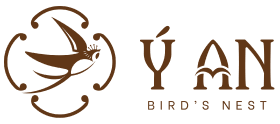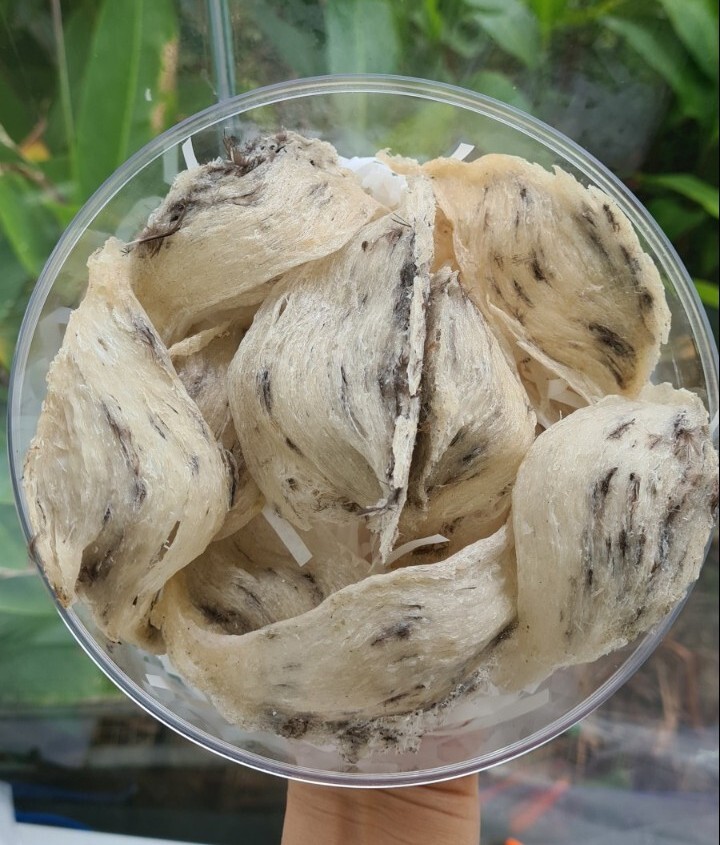PRODUCT CONSULTATION
Expert Advice: What Is The Appropriate Dosage Of Bird’s Nest For Babies?
**Expert Advice: The Appropriate Dosage of Bird’s Nest for Babies**
Bird’s nest, known as a delicacy in Asian cultures, is often associated with numerous health benefits, including boosting immunity, promoting skin health, and supporting overall development. As a result, many parents consider giving bird’s nest to their babies as a natural supplement. However, it is essential to understand the appropriate dosage, timing, and potential benefits or risks before introducing bird’s nest into a baby’s diet. In this article, we will provide expert advice on the proper use of bird’s nest for infants, including dosage recommendations, potential health benefits, and precautions to ensure safety.
### **1. What Is Bird’s Nest?**
Bird’s nest refers to the nest made from the hardened saliva of swiftlets. Unlike traditional nests made of twigs and leaves, swiftlets’ nests are entirely composed of the birds’ saliva, which hardens upon exposure to air. These nests are harvested mainly in Southeast Asian countries like Indonesia, Malaysia, Thailand, and Vietnam.
**Nutritional Components**:
– **Glycoproteins**: These are believed to promote cellular repair, strengthen immunity, and support overall growth.
– **Sialic Acid**: An essential nutrient that may aid in brain development.
– **Collagen**: Supports skin elasticity and may promote tissue repair.
– **Minerals**: Includes calcium, potassium, magnesium, and iron, which are beneficial for growth and development.
Bird’s nest has been traditionally used as a health tonic, particularly for children, pregnant women, and the elderly. However, while it is celebrated for its health benefits, introducing bird’s nest to babies should be done cautiously and under proper guidance.
### **2. When Is It Safe to Introduce Bird’s Nest to Babies?**
Most pediatric experts recommend introducing bird’s nest to babies only after they reach the age of **6-12 months**. The first six months of a baby’s life should be solely dedicated to breastfeeding or formula feeding, which provides all the necessary nutrients for growth and development. Introducing solids and other supplements, including bird’s nest, too early can increase the risk of food allergies or digestive issues.
Once a baby is at least 6 months old, small amounts of bird’s nest can be incorporated into their diet. However, it is advisable to start with a **very low dosage** to ensure that the baby’s digestive system can handle it without adverse reactions.
### **3. Recommended Dosage of Bird’s Nest for Babies**
The dosage of bird’s nest for babies should be carefully managed to avoid overconsumption. Babies have more sensitive digestive systems compared to adults, so a gradual introduction is crucial.
Here are the recommended dosages based on age:
– **6 to 12 months old**: Start with a very small amount, such as **half a teaspoon** (about 2-3 grams) of prepared bird’s nest mixed into baby food or milk once every **2 weeks**. Gradually increase to 1 teaspoon (5 grams) if the baby shows no allergic reactions.
– **1 to 2 years old**: You can increase the frequency to **once a week**, with a dosage of **1 teaspoon** (5 grams) per serving.
– **2 to 5 years old**: The dosage can be adjusted to **1-2 teaspoons** (5-10 grams) per serving, given twice a week.
It is important to note that bird’s nest should not replace the baby’s primary nutrition source, such as breast milk or formula, but rather serve as a supplement.
### **4. Health Benefits of Bird’s Nest for Babies**
When given in the right dosage, bird’s nest may offer several potential health benefits for babies, including:
– **Immune System Support**: The glycoproteins and other bioactive compounds in bird’s nest may help strengthen a baby’s immune system, making them less prone to infections.
– **Promotes Brain Development**: Sialic acid found in bird’s nest is crucial for brain development, potentially enhancing cognitive functions and memory.
– **Skin and Tissue Repair**: Collagen and amino acids in bird’s nest can support skin health and promote faster recovery from wounds or illnesses.
– **Improves Appetite and Digestion**: Bird’s nest is believed to have a gentle effect on the digestive system, which can help improve appetite and digestion in babies.
### **5. How to Prepare Bird’s Nest for Babies**
To ensure safety and digestibility, bird’s nest should be **thoroughly cleaned and prepared** before giving it to babies. Here’s a simple method to prepare bird’s nest:
**Ingredients**:
– 2-3 grams of dried bird’s nest
– 250 ml water
– Optional: a small amount of rock sugar (for children above 1 year)
**Instructions**:
1. **Soak the dried bird’s nest** in water for 3-4 hours or until it softens. Drain the water and rinse to remove any impurities.
2. Place the softened bird’s nest into a pot with 250 ml of fresh water.
3. **Simmer on low heat** for about 30-45 minutes until the bird’s nest is fully dissolved and becomes gelatinous.
4. Let it cool and mix a small portion with baby food or milk.
**Important Note**: Avoid adding sugar or honey if the baby is under 1 year old, as it may cause digestive issues or increase the risk of botulism (in the case of honey).
### **6. Potential Risks and Precautions**
Despite its benefits, feeding bird’s nest to babies comes with some risks, particularly if not prepared properly or given in excess. Here are a few key precautions:
#### **6.1. Allergic Reactions**
Some babies may be allergic to bird’s nest, resulting in symptoms such as skin rashes, swelling, difficulty breathing, or digestive upset. To minimize risks:
– Start with a very small amount and observe for any signs of allergic reactions.
– Wait 2-3 days before offering another serving to ensure the baby does not have a delayed allergic response.
#### **6.2. Contamination Risks**
Poorly processed bird’s nests can contain impurities like feathers, dust, or bacteria. To prevent this:
– Purchase bird’s nest from reputable suppliers that provide certification of cleanliness.
– Always thoroughly clean and cook the bird’s nest before feeding it to your baby.
#### **6.3. Overconsumption**
Bird’s nest should be consumed in moderation, especially for babies. Overconsumption may lead to digestive issues, such as bloating or constipation.
#### **6.4. No Substitute for Balanced Nutrition**
While bird’s nest may offer certain health benefits, it should **not replace essential nutrients** that a baby needs from breast milk, formula, or solid foods. Always prioritize a balanced diet with fruits, vegetables, proteins, and grains.
### **7. Consulting with a Pediatrician**
Before introducing bird’s nest into your baby’s diet, it is best to **consult with a pediatrician**. A healthcare professional can provide personalized advice based on your baby’s health status, allergies, and nutritional needs.
Key questions to ask your pediatrician include:
– Is bird’s nest safe for my baby’s specific age and health condition?
– What is the best dosage for my baby based on their weight and nutritional requirements?
– Are there any potential interactions with my baby’s current diet or any medical conditions?
### **8. Conclusion**
Bird’s nest can be a nutritious supplement for babies, offering potential benefits like immune support and improved cognitive development when introduced at the right age and dosage. However, it is crucial to approach its use with caution, ensuring proper preparation and adherence to recommended guidelines. Always consult with a pediatrician before adding any new food to your baby’s diet, especially something as unique as bird’s nest.
By carefully managing the dosage and ensuring proper preparation, parents can safely incorporate bird’s nest into their baby’s diet, helping to enhance their overall health and development.

